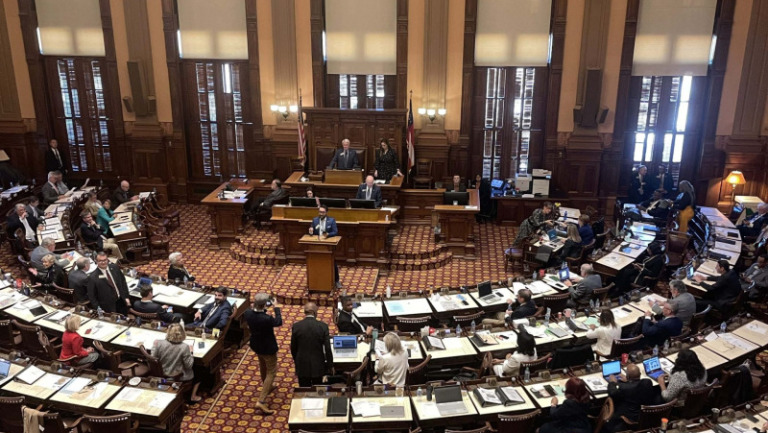By Ethan Pearson
Atlanta, February 24, 2024 – There are two proposed Georgia laws from the House and Senate that are making waves in the AAPI community, and not in a good way. House Bill 1093 (HB 1093) and Senate Bill 420 (SB 420) both seek to prevent “nonresident aliens” and “foreign adversaries” from owning land and agricultural land near military bases, military installations, and military airports. What does this mean, and how can it further affect the AAPI community?
What is a “nonresident alien” and a “foreign adversary?”
According to both bills, a “nonresident alien” is someone who is not a United States citizen or legal resident and is still a “subject” of a “foreign adversary,” a business entity based in a “foreign adversary” or at least 25% owned by a business located in a “foreign adversary,” or a foreign government of a “foreign adversary.” Foreign adversaries are determined by the United States Secretary of Commerce, which include countries like China, Russia, North Korea, Cuba, Iran, and the Maduro Regime of Venezuela. Effectively, if someone is from one of these countries and has not become a United States citizen or legal resident, they are considered a nonresident alien.
HB 1093 vs. SB 420: A comparison
While the House Bill and Senate Bill are largely similar, they have differences relating to land ownership from the radius of military installations and when the “nonresident alien” must give up possessory interest. Possessory interest is the right to occupy land or own property. House Bill 1093 restricts direct or indirect possessory interest of agricultural land or land within a 10 mile radius, while Senate Bill 420 restricts it a 25 mile radius – basically, it prevents people who are not United States citizens or legal residents from owning land “too close” to military properties. Both bills also require nonresident aliens to give up their possessory interest of any agricultural land within certain time frames according to how they acquired possessory interest – Senate Bill 420 is no more than 2 years, while House Bill 1093 goes as low as 1 year to give up possessory interest. Otherwise, the bills agree regarding punishment for breaking the proposed laws – 1 to 2 years in prison, a maximum fine of $15,000.00, or both.
How does it affect the AAPI community?
The biggest issue with these bills is the overall ambiguity. First, agricultural land is defined in both bills as land capable of being used for agricultural purposes but may not even be currently used for that. That wording is purposefully vague to restrict ownership of land with only consideration to who is trying to utilize that land. Secondly, “nonresident alien” is a catch all term; it can affect many people who travel out of state or the country for extended periods of time, non-citizens, or AAPI businesses that are at least partially owned by entities in “foreign adversaries.” Most importantly are the potential impacts these bills could have. If these laws pass, who is to say ownership of land isn’t further restricted? Will future laws isolate and divide the AAPI community? Could these two bills lead to future bills that legally seize AAPI land and businesses if they are deemed national security threats? For example, Executive Order 9066 relocated and incarcerated many Japanese Americans during World War II due to fears of espionage – how is that different from restricting and preventing land ownership around military infrastructure? If you give an inch, they take a mile. How will this affect all Georgia residents? While House Bill 1093 and Senate Bill 420 aim to protect national interests, these bills could cause more harm than good.
Overall, Georgia legislators who passed this bill must not have taken the view of the perceived impact on future economic development and foreign direct investment in Georgia. Investment by Asian corporations by SK Battery, Hyundai, Hitachi, etc will not materialize if this proposed bill is made into law. It will surely dampen future foreign direct investments and Georgia workforce will lose the competitive edge to neighboring states.









